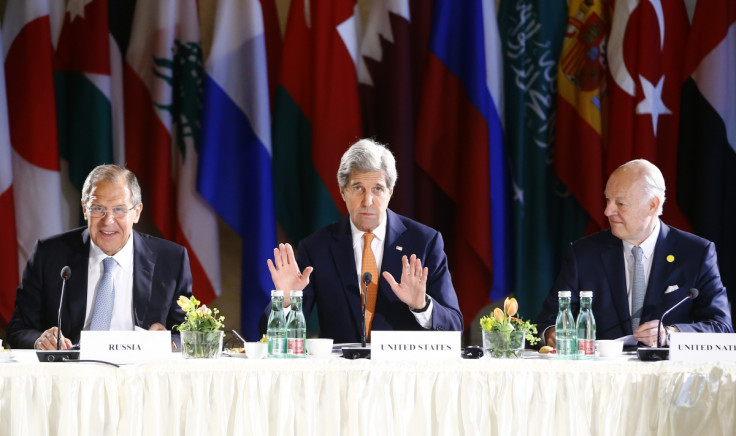Syria crisis: World leaders meet in Vienna to renew peace efforts in Syria

World leaders from 17 nations have started fresh round of talks in Vienna to discuss the ceasefire process and a possible breakthrough in war-ravaged Syria on 17 May. US Secretary of State John Kerry and Russia's Foreign Minister Sergei Lavrov will co-chair the meeting of the International Syria Support Group.
Backing the main opposition alliance – with limited arms support to the moderate rebels – the US has been demanding that President Bashar al-Assad must resign. However, with undaunted support from Russia, Assad has shown no intention of stepping down from the state leadership, which has left European nations frustrated as the talks so far have not led towards achieving peace.
"Many have consistently underestimated Russia's determination to prevent this regime from falling," said Philip Gordon, a former National Security Council aide to President Obama. "They have been pretty clear that they're not prepared to let this happen," Reuters quoted him as saying.
Speaking on condition of anonymity, a senior UN diplomat told the news agency: "We haven't got anywhere near having that discussion with the Syrians themselves because the US and Russia have been trying to bridge the gap, and they haven't been able to do so. So that's why we have got to come back and multi-lateralise this."
Leaders from US, Russia, France, Turkey and Saudi Arabia among others will make an attempt to restore the cessation of hostilities agreement signed between Washington and Moscow on 27 February 2016 to ensure that humanitarian aid is delivered in beleaguered areas.
The truce agreement was battered when government forces reportedly started to focus on fighting Islamic State (Isis) and al-Qaeda-affiliated al-Nusra Front militants, as the rebels had stopped their attacks because of the cessation deal.
Meanwhile, Saudi Arabia hinted that it would not bank on Washington's attempt at convincing Russia to remove Assad from power, and suggested that it may supply heavier arms to the opposition groups fighting against the Syrian government.
"The choice is Bashar al-Assad's... He will be removed, either through a political process or through military force," Saudi Foreign Minister Adel al-Jubeir had earlier told reporters in Paris.
What started off as pro-democracy protests against the Assad government soon spiraled into a nationwide conflict as government forces started targeting civilians in rebel-held areas.
So far, the ceasefire agreement has done very little to help maintain peace, but it still looks bleak to bring the five-year-old war to an end, which has claimed over 400,000 lives, according to the UN estimates.
© Copyright IBTimes 2025. All rights reserved.





















